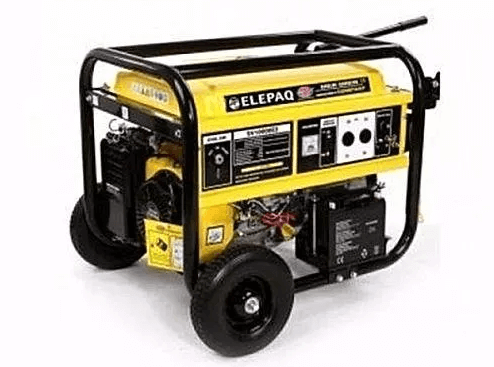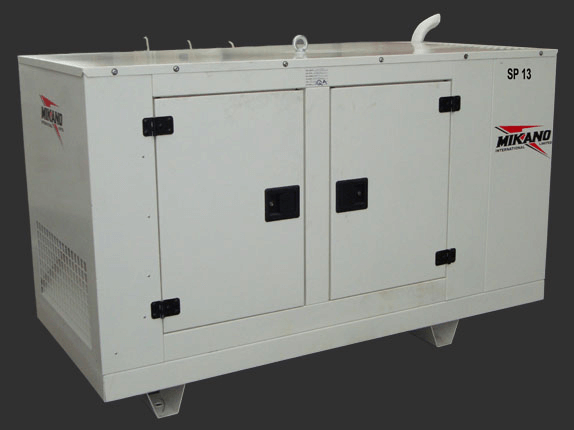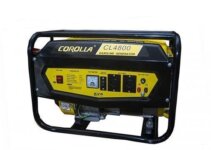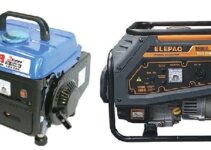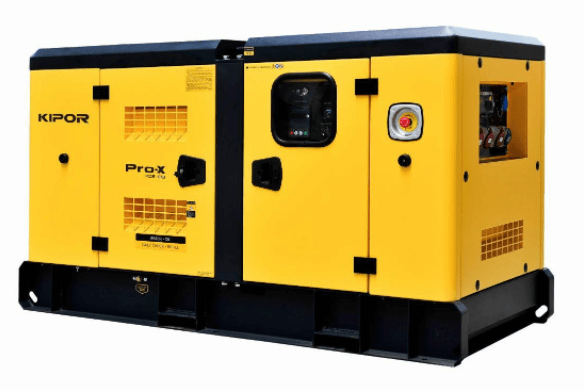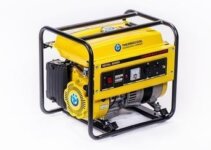Power supply has been an issue in Nigeria for a long time. Different kinds of personal and business establishments have resorted to using other sources of power to generate electricity. One such source is generators.
There are different brands and types of generators on the market. These generators come in different sizes and with different capacities. One that is quite popular in business locations like big restaurants, hotels, short-stay apartments, and office complexes is 50 KVA Generators.
How much does it cost to own a 50 KVA Generator in Nigeria? What are the specifications of some of the popular products on the market? This post will answer these questions and more so continue reading.
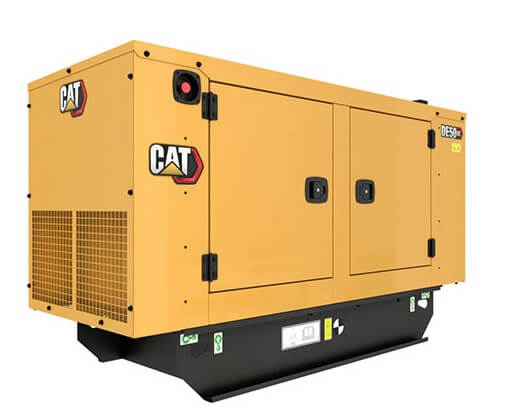
50 KVA Generators & Prices in Nigeria
Knowing your power needs is very important before you step out to buy a generator. If you own several pieces of heavy equipment that consume a lot of power, you need a high-capacity generator. 50 KVA generators are among the most popular in this category of generators in Nigeria.
Before you shell out money for one of these generators, it is wise to know the prices of different products. This knowledge helps you to figure out which of the products you can afford. You will also have the opportunity to prepare adequately for the purchase. We have surveyed the market to find out the most popular 50 KVA generators and their prices. Check the list below to discover our findings:
- Perkins 50 KVA Generator: From N15.95 million
- Mikano 50KVA soundproof power generator [1103-33TG1]: From N8.5 million
- Mikano 50KVA power generator [1103-33TG1]: From N8 million
- FG Wilson 50 KVA P55-6S Generator: From N17.8 million
- FG Wilson 50 KVA P55-4 Generator: From N17 million
- CAT DE50GC 50 kVA Three Phase Silent Diesel Generator: From N10 million
PRICES LAST UPDATED: APRIL 6, 2024.
Note that these prices fluctuate a lot on the market due to several factors. Some of these factors include exchange rate, customs duty, inflation, etc. You may also notice a slight difference in prices depending on your location and the vendor that you patronize. We will keep watching out for price changes and update this post with the latest prices accordingly.
Specifications of 50 KVA Generators in Nigeria
Another very important factor you must consider when choosing a generator is the specifications. Don’t just focus on the power capacity of the generator. The specifications give you insight into what the generator can and cannot do. It also helps you know how best to care for your generator. This section will show you the specifications of some of the 50 KVA generators we have mentioned above.
CAT DE50GC 50 kVA Three Phase Silent Diesel Generator Specifications
- Engine Model: Cat® C3.3 Inline 4-stroke Diesel
- Bore x Stroke: 105.0 mm x 127.0 mm (4.1 in x 5.0 in)
- Displacement: 3.3 L (201.4 in³)
- Compression Ratio: 17.25:1
- Aspiration: Turbocharged
- Fuel Injection System: Inline
- Governor: Mechanical
- Genset power rating: 50.0 kVA
- Genset power rating with fan @ 0.8 power factor: 40.0 kW
- Emissions: Low BSFC
- Performance number: P2502B
- Fuel tank capacity, litres (US gal): 103 (27.2)
- 100% load with fan, L/hr (gal/hr): 11.7 (3.1)
- 75% load with fan, L/hr (gal/hr): 8.7 (2.3)
- 50% load with fan, L/hr (gal/hr): 6.0 (1.6)
- Radiator air flow, m³/min (cfm): 86.4 (3051)
- Total coolant capacity, L (gal): 10.2 (2.7)
- combustion air intake restriction, kPa (in H2O): 8.0 (32.1)
- Combustion air inlet flow rate, m³/min (cfm): 3.1 (109)
- Exhaust stack gas temperature, °C (°F): 537 (999)
- Exhaust gas flow rate, m³/min (cfm): 7.7 (272)
- Exhaust system backpressure (maximum allowable), kPa (in. water): 10.0 (3.0)
- Heat rejection to jacket water, kW (Btu/min): 30.0 (1706)
- Heat rejection to the alternator, kW (Btu/min): 5.2 (296)
- Heat rejection to the atmosphere from the engine, kW (Btu/min): 8 (455)
- Heat rejection to exhaust (total) kW (Btu/min): 35.0 (1992)
FG Wilson 50 KVA P55-6S Generator Specifications
- Minimum Rating: 50 kVA / 50 kW
- Maximum Rating: 55 kVA / 55 kW
- Emissions/Fuel Strategy: EU Stage IIIA emissions compliant.
- 50 Hz Prime: 50 kVA / 50 kW
- 50 Hz Standby: 55 kVA / 55 kW
- 60 Hz Prime: – / –
- Frequency: 50 Hz
- Speed: 1500 RPM
- Voltage: 220-240 Volts
- Engine Model: Perkins® 1104D-44TG2/3
- Bore: 105 mm (4.1 in)
- Stroke: 127 mm (5 in)
- Governor Type: Mechanical
- Displacement: 4l (268.5 cu. in)
- Compression Ratio: 18.23:1
50 KVA Generators Maintenance Tips
Your generator, just like every piece of equipment in your home or business venue, requires maintenance. Carrying out maintenance procedures frequently protects the generator from breaking down and increases its lifespan. This section will provide you with a few maintenance tips for 50 KVA generators.
Oil changes
This is arguably the most important maintenance procedure for generators. You need to change the engine oil regularly. The question that most people ask is, “How often should I change my generator’s engine oil?” Several variables determine the answer to this question including:
- Generator brand.
- Frequency of use.
- The environment where you operate the generator.
According to industry experts, you should change your generator’s oil between 50 and 200 hours of use. Newer model generators don’t require as many oil changes as their older counterparts. This is because they burn cleaner.
Keep the generator clean
Every generator works from the stator and rotor. Both parts are located within the generator and work simultaneously to produce electricity. While in operation, these parts collect debris, dust, and several other impurities.
You shouldn’t leave your generator to gather too much grime. If you do, you risk the rotor and stator’s efficiency. This means that your generator wouldn’t produce as much power as you expect it to. You also risk burning these parts up faster than normal.
Warm the engine
Despite the power situation of the country, you must understand that generators are only a backup power supply option. This means that there are times when you may not run your generator when there is a regular power supply.
You should endeavour to start the generator and run it for a few minutes every day when this happens. Doing this helps to charge the batteries and keep the carburettor and other engine parts in good working condition.
